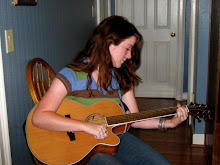From the introduction, one quickly finds Dorothy Wordsworth to be humble and unassuming. Her writing was at the urging of her brother, William and she claimed he was the only reason that she did. The other interesting aspect of Wordsworth was her role in the family. She lived with her brother and his wife, Mary Hutchinson. Her nephews and nieces were well-loved and nurtured by their aunt.
Her piece that struck me the most was Address to a Child. All her writings exhibit a sense of sincerity and genuineness. This truthful style makes it easy for the reader to relate and comprehend the emotions that are exhibited. Dorothy's brother had died in a shipwreck and this address was sent to her nephew as a means of comfort. The focal point of this story is wind and its effect. The usage of wind was metaphorical genius. She opens the story with questions about how wind comes and goes. Questions seem an appropriate beginning because her nephew is probably longing for answers as to why his father had died. In the following lines, she discusses how wind affects nearly everything in nature. She portrays the vastness of wind and highlights how even scholars do not understand the purpose or pattern of wind. Even if one goes looking for the answers, wind is beyond comprehension. This metaphor is perfect because the loss of the boy's father is also incomprehensible. I believe she is telling her nephew that there is no explanation as to why his father had to die; just like the wind, human life can come and go without reason. Dorothy is expressing it gently through her symbolism, but essentially, her advice to Johnny is to do his best to move forward and stop chasing after the wind for answers.
Subscribe to:
Post Comments (Atom)

2 comments:
Meredith,
I like the way you introduce your post on Dorothy Wordsworth and the way you focus on a single of her poems, "Address to a Child." You also offer several insightful observations about her depiction of the wind, particularly as it relates to her intended audience, her nephew. I do wish you had provided even one quotation from the poem, though, rather than relying on paraphrase and summary. It is chiefly in the particular words that the meaning of poems resides; when you recast the poet's words into your own, you are already introducing the potential of missing the poet's meaning and substituting your own.
I love Dorothy Wordsworth's naturalistic imagery as well. After reading The Grasmere Journals, I wonder how much of it is imagery, and how much is actually just a picture perfect reflection of her surroundings. The way she writes (and her brief biography) lead one to believe that she spent much of her writing time immersed in nature. It's no wonder she found such strong connections between real-life-events and the sights she saw daily.
Post a Comment